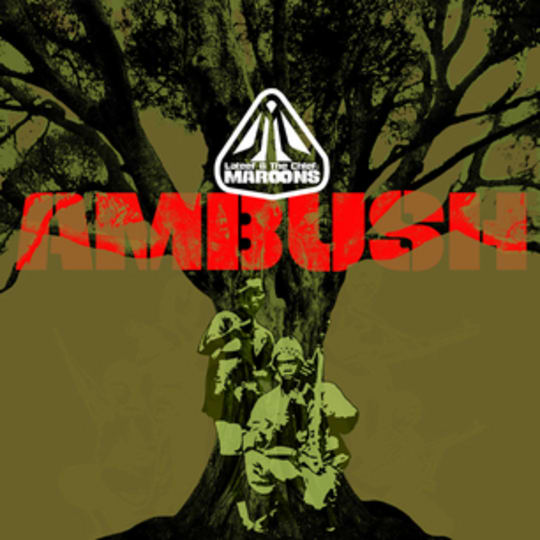Lateef & The Chief Are Maroons Bio
In these days of trouble, Lateef & The Chief's Maroons : Ambush, offers soul power against soul-crushing powers, hard music for hard times.
The Maroons are Lateef the Truth Speaker, one-half of the critically acclaimed Latyrx, and Chief Xcel, Blackalicious' musical mastermind. After years of working together in the studio and on the road, Ambush is the first fruit of their extended collaboration. From the opening title track through the last track, "365," they turn battle rhymes into statements of peace, and celebrate survival, solidarity, and the sistas. For them, "Don't stop" is both a command and an affirmation.
They took their name from the renegade 18th century African societies that erupted in the slave colonies of the New World from Brazil to Jamaica to Surinam to Florida. "The Maroons are still inspiring," Xcel says. "They were Africans who refused to be enslaved. To us as black men trying to be responsible and accountable, they represent freedom and independence."
Lateef adds, "That's been our whole approach to music and the industry and to ourselves---to create without being watered down by what society or popular culture dictates, to be to able to speak our minds from a place of our own integrity."
The two met in 1992 in the basement studios of KDVS-FM at the University of California at Davis, and immediately bonded over hip-hop records. Xcel came from Sacramento, born to parents who had been involved in the black power movement. Lateef was raised in East Oakland, where his father was security detail for the Black Panthers and his mother was a Panther medic and a roommate and political associate of Angela Davis.
Linking with the Gift of Gab, Lyrics Born, and DJ Shadow, Lateef and the Chief formed the SoleSides collective and released a series of classic singles and albums. Lateef debuted in 1996 on a now-prized limited-edition single with the DJ Shadow-produced cuts, "The Wreckoning" and "Latyrx". The following year, SoleSides flowered into Quannum, and the two recorded "Jada's Vengeance" for the Quannum Spectrum album.
After Blackalicious' Nia dropped, the two began planning the Maroons record. At the same time, Lateef joined Blackalicious for the recording of Blazing Arrow and on their subsequent world tours. He cut the road rage comedy, "Mashing On The Motorway", for DJ Shadow's The Private Press. He recorded a cover of Fela Anikulapo-Kuti's "Kalakuta Show" with Mixmaster Mike and the Gift of Gab for the tribute album, Red Hot + Riot!, and is now being featured on Fatboy Slim's new album Palookaville in two star-making turns.
For Ambush, Lateef says, "We wanted the record to be hard, to reflect where we're from and how we approach this. At the same time we also wanted to show some breadth and width as artists and songwriters."
All that is amply demonstrated on the mini-album's nine songs. "Don't Stop" is a dedication to a beautiful woman with a hardened heart, giving the back-story to Latyrx's concert fave, "Lady Don't Tek No". "Matter of Time" is a classic Quannum-style ear-burner, while "Best of Me" and "Beautiful You" pair Lateef with the Gift of Gab for hot slices of elevation. "Best of Me (Bonus Beat)" is a concise marvel of heart-stopping beats and signifying wordplay. On "If", Lateef asks cutting questions about Bush's war and the current election-year state of emergency.
"365" and the title track lay out the Maroons' strategy---Afrodiasporic beats that effortlessly bring together jazz, samba, charanga, dub and funk through hip-hop and fluid whirlwind rhymes rippling with metaphors and ideas. The cumulative effect is something like the spine-shattering impact of a close encounter with Lester Hayes, the Oakland Raiders' legendary safety.
Choosing to innovate while staying true to their history, the Maroons are reviving an aesthetic that inspired the Harlem Renaissance, the Black Arts Movement, and the filmmakers, musicians, and writers of the hip-hop explosion of the late 80s and early 90s---making art that connects to the people's experiences and emotions.
"Our job is making people come together," Lateef says. "We're kind of like servants for the people. People use what we do in their own daily lives to help them get through. So we can't stop now."
-Jeff Chang, Summer 2004

